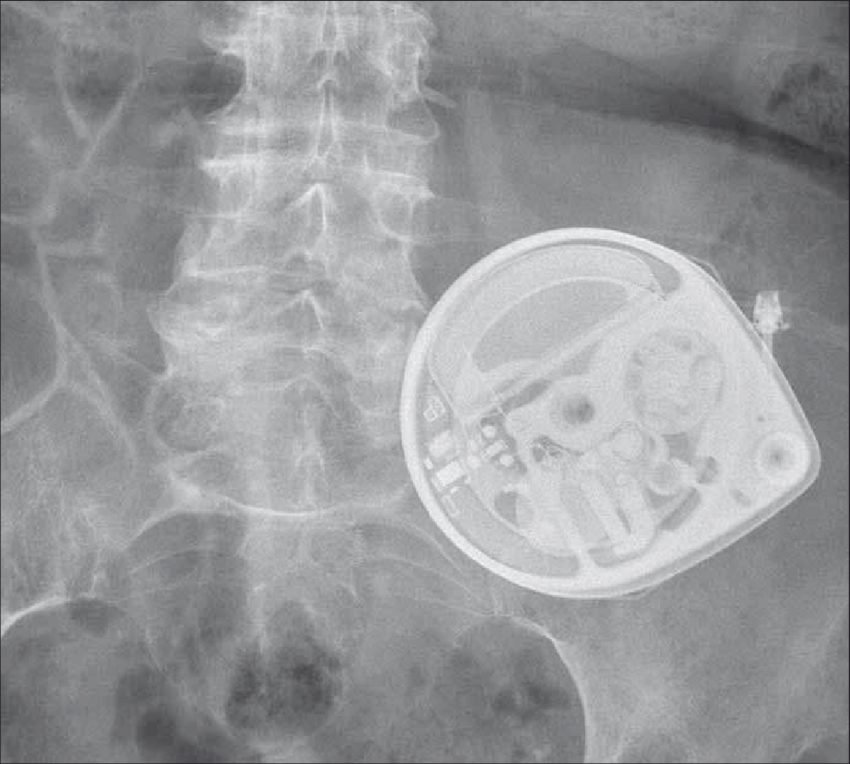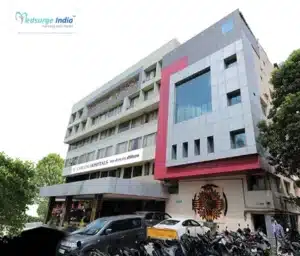Baclofen Pump Implantation Procedure Cost in India
Unlock Exclusive Discount : Your Gateway to Premium Healthcare with Medsurge India Health Value Card.

Unlock Exclusive Discount : Your Gateway to Premium Healthcare with Medsurge India Health Value Card.


In order to treat severe to moderate-severe spasticity that is unresponsive to oral medicines, baclofen pump implantation is performed surgically to implant a pump that delivers baclofen directly to the spinal fluid.
By continuously delivering small doses of baclofen directly to the spinal fluid, it increases therapeutic benefits while causing fewer and less severe side effects compared with oral medication.
A pump and a catheter deliver the drug from the pump into the spinal fluid in the baclofen pump system. The pump is a round metallic disc that is surgically placed under the skin of the abdomen (about 1 inch thick and 3 inches in diameter).
The aim of Baclofen pump implantation is to reduce spasticity caused by multiple sclerosis, spinal cord injuries, or other neurological conditions.
Baclofen is a medically prescribed pain reliever that is used to treat pain and spasticity (muscle stiffness and tightness) caused by multiple sclerosis, spinal cord injuries, and other spinal cord disorders. Baclofen belongs to the skeletal muscle relaxant class of drugs. Baclofen works by acting on the nerves in the spinal cord, reducing the amount and intensity of muscular spasms caused by multiple sclerosis or other spinal disorders. It also helps with pain relief and muscle movement.
Some of the baclofen’s adverse effects include:
Baclofen is available as a tablet and a liquid solution to be taken by mouth. It’s commonly taken three times a day, at regular intervals. Follow the directions on your prescription label carefully, and if there is anything you do not understand, ask your doctor or pharmacist to explain it to you. Baclofen should be taken exactly as prescribed. Do not take more or less of it, or take it more frequently than your doctor has suggested.
To correctly measure and take your baclofen solution dose, use an oral syringe (measuring instrument). If your prescription does not come with an oral syringe, ask your pharmacist for one.
Even if you feel fine, keep taking baclofen. Stopping baclofen without consulting your doctor is not a good idea, especially if you’ve been taking significant doses for a long time. Seizures, fever, disorientation, muscle rigidity, and hallucinations may occur if you stop taking this drug suddenly. Your doctor will most likely wish to progressively reduce your dose.
If you have severe spasticity and are not responding to oral drugs, your doctor may refer you for a consultation to see if Baclofen Pump Implantation is a better fit for you. A physician and physical/occupational therapists frequently conduct detailed clinical assessments. These experts provide information about BPT that can be discussed.
After that, a test injection is given to further assess the baclofen pump implantation suitability. A spinal tap is performed, and a little amount of baclofen is administered into the spinal fluid. The medication’s effects are examined a few hours later. These effects are only transient, yet they provide extremely useful information that aids decision-making.
Patients stay in the hospital for a few days after surgery. The time it takes for a patient to resume regular activities is largely determined by his or her pre-operative condition and age. Once your vital signs have stabilized and you have returned to baseline functioning, you should be allowed to go home. The pump will need to be replenished every couple of months, depending on the size, concentration, and dose of the pump. Refills are completed in the office with a syringe and needle and take around fifteen minutes. Baclofen doses are modified at that time based on the side effects observed.
Know More – How To Refill Baclofen Pump
The baclofen drug is administered into the spinal canal (with a small needle) during a baclofen implantation procedure, and you are evaluated by the medical team over many hours to see how well the medicine relieves the spasticity. If you have a positive effect, you may be a candidate for a permanent pump to provide the medication.
While the patient is under general anesthesia, the pump is implanted beneath the covering of the abdominal muscles. A short catheter is then introduced into the spinal fluid area through a needle and threaded upward. The catheter is then dug down under the skin and attached to the pump in the belly. The pump is filled with the drug baclofen and is programmed by a computer to release a certain dose decided by the physician on a continuous basis.
When the wound is closed with suture material (stitches) or surgical staples, the procedure is finished. If staples or non-absorbable sutures were used to close the outside incision, they will need to be removed once the wound has healed. It normally takes 1-2 hours to complete the operation. In additional significance, the baclofen pump implantation cost in India is quite affordable as compared to other European countries.
A: You'll experience some discomfort and tenderness at the pump and catheter sites after surgery. Your doctor may give pain relievers and medicines to avoid infection as a result of the procedure. If you detect any swelling, pain, or redness near your incision, call your doctor.
A: Baclofen pump implantation programming is extremely adaptable, allowing for more precise baclofen dosing and the delivery of multiple doses at different times of the day. Baclofen pump implantation is reversible, unlike other surgical therapies, because the pump can be turned off and removed if necessary.
A: After the pump is installed, the recovery time is usually 6–8 weeks. You may feel a little uncomfortable at first, and your motions may be restricted.
A: The use of a baclofen pump is typically safe, and problems are uncommon, but they do occur.
A: A modest dosage of Lioresal® Intrathecal (baclofen injection) will be injected into the area where a fluid circulates around your spinal cord during the test. For at least 6 to 8 hours, your reaction will be watched. The effects can last anywhere from 30 minutes to an hour, and they usually last 4 to 8 hours.

Medical Oncologist
Associate Consultant
10+ years
Meitra Hospital, Calicut, Kerala
View Doctor
Radiation Oncologist
Senior Consultant
10+ years
Apollo Proton Cancer Centre, Chennai
View Doctor
Surgical Oncologist
Senior Consultant
8+ years
Meitra Hospital, Calicut, Kerala
View Doctor

Medical Oncologist
Consultant
15+ years
Care Hospitals HITEC City
View Doctor
Surgical Oncologist
Sr. Consultant & Associate Clinical Director
20+ years
Care Hospitals HITEC City
View Doctor
Surgical Oncologist
Senior Consultant
13+ years
Care Hospitals HITEC City
View Doctor
Surgical Oncologist
Senior Consultant & Head of the Department
22+ years
Care Hospitals HITEC City
View Doctor
Surgical Oncologist
Senior Director
15+ years
Fortis Hospital, Vasant Kunj, Delhi
View Doctor
Medical Oncologist
Consultant
12+ years
Fortis Hospital, Vasant Kunj, Delhi
View Doctor









By using our site, you agree to our Terms and Conditions, Privacy Policy and Refund Policy. Medsurgeindia does not provide medical advice, diagnosis, or treatment. The information provided on this site is designed to support, not replace, the relationship that exists between a patient/site visitor and his/her existing physician. We also Accept International Payments.

Copyright © 2025 NSM ONLINE SOLUTIONS PRIVATE LIMITED. All rights reserved.